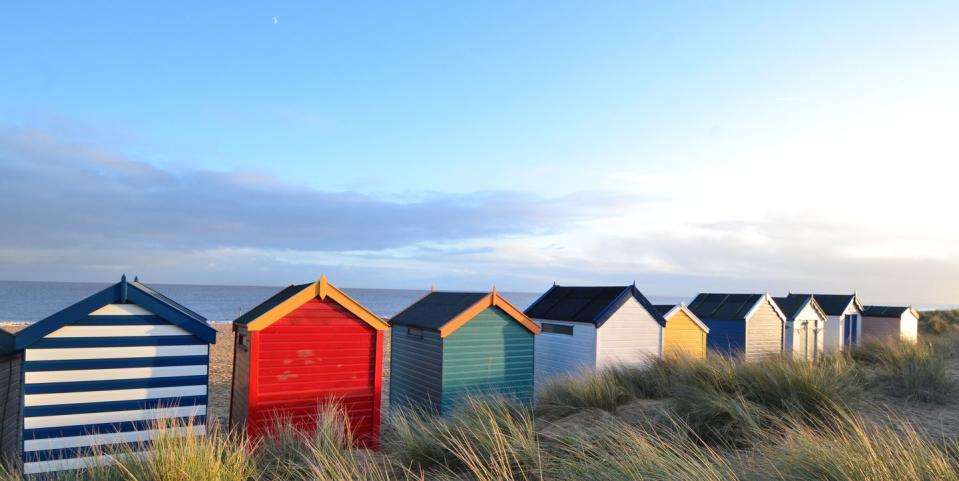Considering investing in a beach hut? A property expert weighs up the pros & cons

Thanks to the rise in popularity of staycations in recent years, beach huts have had a trendy revival with prices of huts across England’s seaside resorts increasing by 43 per cent to an average of £50,000 in the last 12 months.
And, property experts predict prices are set to rise even further in the next year as more and more Brits try to purchase a beach hut of their own.
'The interest in beach huts is fast emerging as one of the most remarkable trends in the property market right now,' says Jonathan Rolande from the National Association of Property Buyers. 'People are literally queueing up to buy them in some places, with bidding wars taking place in many cases.'
Beach huts have long been a fixture on our beaches. Often used for storing essentials like surf boards and paddle boards, and a welcome retreat for beach goers to change and relax out of the sun. But, why the recent hype?
'The popularity is probably linked to the long, hot summer of 2022. Also, staycations are still popular thanks to the increased cost of travel overseas and widely reported disruption at ports and airports in busy periods,' Jonathan tells us.

But, that’s not the only reason for the hike in prices. 'The other issue driving price rises is that supply is pretty much static – which always helps to drive up prices,' explains Jonathan. 'Many people have re-evaluated life and want to have more quality time with their family.
'In comparison to house prices, a beach hut is still a cheap additional space, compared to the cost of a property. And, the growth in popularity of paddle boarding, sea swimming and kayaking makes a beach hut a convenient asset to own.'
Considering buying your own beach hut? Here, Jonathan outlines the pros and cons you should consider before making the investment.
PROS:
Access to the beach: Enjoy the sun, sea and sand whenever you want with a hut.
A private space: The ideal spot for you and your family to relax, change, and store your belongings.
A sense of community: Beach hut owners often form a close-knit community, which can be a great way to meet new people and make friends.
Rental income: If you're not using your beach hut throughout the year, you can rent it out to others and make some extra income.
Investment potential: Beach huts can increase in value over time, so could be a worthy investment.
Great for family activities: Beach huts provide a perfect base for family activities, such as picnics, BBQs, and water sports.
CONS:
Cost: Beach huts can be expensive to buy, particularly in popular seaside locations. A study by Moverly, moving home specialists found that the most expensive beach huts are located in Dorset, where average prices increased by 101 per cent to £123,424. Other expensive locations include Kent, Essex, East and West Sussex, Norfolk and Hampshire. And, that's not considering the ongoing costs such as maintenance, insurance, and ground rent.
Weather: The British weather can be rather unpredictable, and you may find that you're not able to use your beach hut as much as you'd like, particularly during the winter months.
Limited space: While they are often big enough to store beach essentials, beach huts are relatively small and might not be suitable if you have plans to entertain large groups of people.
Limited availability: Whether you want to buy or rent a beach hut, they are like gold dust right now so you might find it tricky to get your hands on one.
Security: Beach huts can be vulnerable to theft or damage, particularly if they're located in isolated areas or left unattended for long periods of time.
Restricted usage: Depending on the terms of your lease, there may be restrictions on how you can use your beach hut, such as restrictions on overnight stays or the types of activities you can engage in, including working. Many people aim to use them to work in, but make sure you are not breaking any rules by doing so.
Maintenance: Beach huts require regular maintenance to keep them in good condition, which can not only be costly, but time-consuming too.
Follow House Beautiful on TikTok and Instagram.
You Might Also Like

 Yahoo Sport
Yahoo Sport 






































